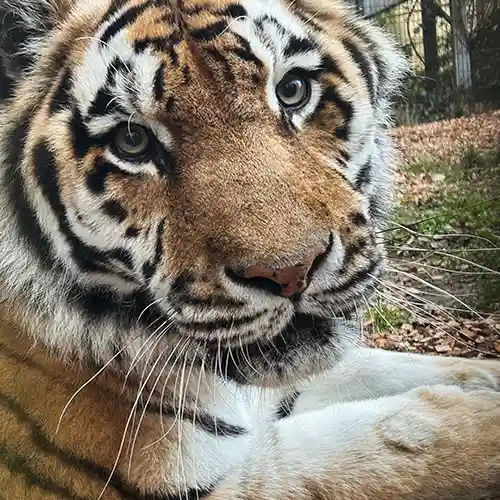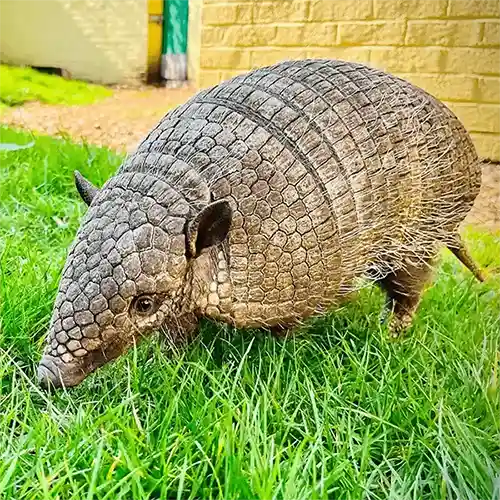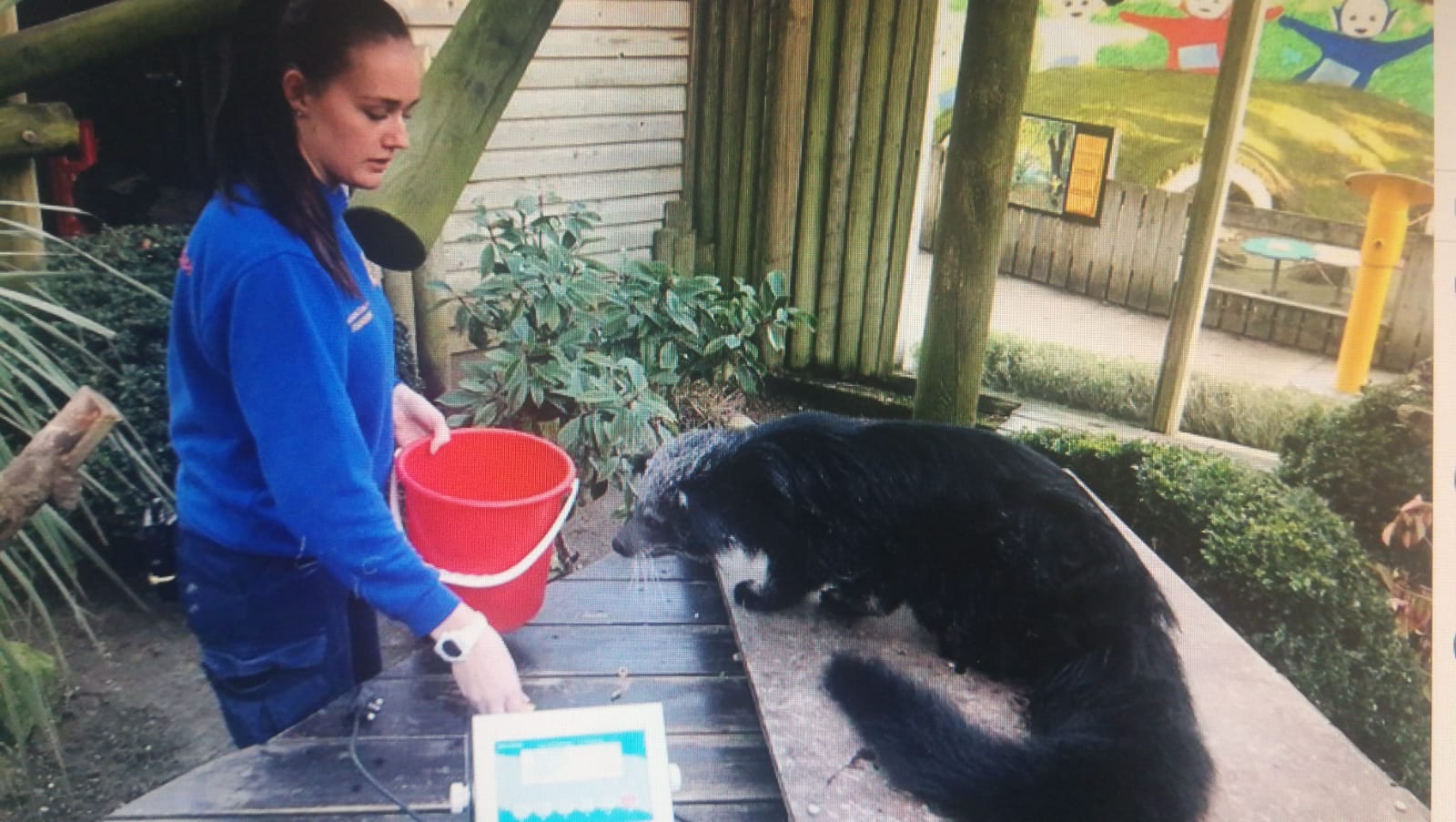How To Become A Zoo Keeper?
페이지 정보

본문
"The achievement of a country and its moral development can be evaluated by the way its animals are dealt with." - Mahatma Gandhi
Do you enjoy animals and imagine working in a zoo? Zoo keepers are key in protecting wildlife and taking care of animals. At locations like the Zoological Society of London (ZSL), over 20,000 animals get the care they require from experts.

To become a zoo keeper, you require effort, education, and a love for animals. This job is exciting, letting you work with lots of types and aid with crucial preservation work. If you're into wildlife or animal welfare, zookeeping might be best for you.
Beginning your zoo keeper profession suggests learning what's needed. This guide will cover education, experience, and more. It's all you need to know to start a satisfying zookeeping profession.
Comprehending the Role of a Zookeeper
Exploring what a zookeeper does exposes a function full of challenges and rewards. They focus on animal welfare and preservation. Zookeepers work hard to keep animals healthy and pleased in their care.
Daily Responsibilities and Tasks
A zookeeper's day is filled with crucial tasks:
- Preparing meals that fulfill each needs
- Cleaning up enclosures to keep them clean and safe
- Supervising animal health and behaviour
- Giving medications and treatments as required
- Developing activities to keep animals psychologically sharp
Working Environment and Conditions
Zookeepers work outside in all sort of weather condition. They handle both indoor and outside areas. The job requires being fit and able to manage the needs of looking after animals.
"Being a zookeeper is more than a task - it's a passionate commitment to animal care and conservation."
Kinds of Animals and Specialisations
Zookeepers can specialise in many animal groups:
- Primates
- Big cats
- Marine mammals
- Reptiles
- Birds
Your role may include working with 2-5 various animal types. This requires a lot of understanding and the capability to adapt.
Vital Skills and Personal Qualities for Zoo Keeping
To be a leading zookeeper, you need more than simply a love for animals. Your task will be difficult and require you to deal with animals and individuals well. You'll also require to understand animal behaviour.
What zoos search for in individuals includes:
- Exceptional persistence and emotional strength
- Strong physical conditioning and stamina
- Keen observation abilities
- Ability to stay calm under pressure
- High level of empathy towards animals
Getting hands-on experience is essential to mastering this role. You'll need to reveal:
- Advanced understanding of animal care techniques
- Efficiency in animal handling and security procedures
- Efficient communication with both animals and human visitors
"A fantastic zookeeper links science, empathy, and conservation in every interaction with animals."
You ought to know about animal nutrition, behaviour, and fundamental veterinarian care. Most zookeepers learn through training, offering, and continuous learning.
Zookeeper work is not simply a job. It's a huge dedication to teaching about wildlife and assisting conservation. Your passion and effort will make you stick out in this satisfying profession.
How to Become a Zoo Keeper
Starting a profession as a zookeeper requires careful preparation and education. You should first comprehend the instructional needs and training paths. These will turn your love for animals into a task.
Educational Requirements
To be a great zookeeper, you need a strong academic base. A lot of jobs try to find specific certifications:
- At least 5 GCSEs at grade 4 or above, including English, mathematics, and science
- A levels or higher education qualifications
- A college degree in biology or animal science
- Level 3 Diploma in Animal Management
Necessary Certifications
Getting special accreditations can truly help you in your zookeeper career. Essential ones include:
- Diploma in Management of Zoo and Aquarium Animals (DMZAA)
- Zookeeping Level 3 Diploma (RQF)
- Animal dealing with certificates
- First aid qualifications
Training Programs and Apprenticeships
Getting hands-on experience is type in zookeeper training. Numerous places provide excellent possibilities:
- Unpaid apprenticeships at wildlife parks
- Internship programmes at widely known zoos
- Practical training at places like Colchester Zoo and Dartmoor Zoo
- Offering to gain real-world abilities
Pro tip: Create a comprehensive portfolio to reveal your animal care skills. It will assist you in task applications.
Structure Relevant Experience in Animal Care
Acquiring hands-on experience is crucial for those wishing to be zookeepers. The task is extremely competitive. So, it's essential to begin developing a strong base in animal care.
Your journey begins with discovering methods to work directly with animals. This is a strategic step.
"Experience is the best instructor in animal care" - Wildlife Conservation Experts
Here work methods to acquire experience dealing with animals:
- Volunteer at local animal shelters to establish fundamental animal handling abilities
- Look for internships at wildlife rehab centres
- Explore part-time positions at veterinary clinics
- Contact your local zoo for possible volunteer chances
Volunteering is a fantastic method to discover animal behaviour and care. Many zoos and animal shelters are looking for people who wish to learn. These locations offer fantastic possibilities to get hands-on experience and show your dedication to animal welfare.
Here are some suggestions to take advantage of your experience:
- Keep a record of your abilities and interactions
- Connect with professionals in animal care
- Ask for referrals and recommendation letters
- Stay consistent and show your true passion
Remember, practical experience makes you stand apart in the zookeeping world. Each time you deal with animals, you discover more. This increases your possibilities of getting a job in animal care.
Profession Pathways and Professional Development
Starting a career as a zookeeper is amazing. It provides numerous opportunities to grow and specialise. Your journey starts with comprehending the various courses in this field.
Entry-Level Positions
Entry-level tasks in zookeeping are a great start. They offer you hands-on experience. Zoos try to find prospects with:
- Level 2 Diploma in Animal Care (minimum certification)
- GCSEs in English and a clinical topic
- Volunteer experience at animal shelters or zookeeper farms
Career Progression Opportunities
As you get experience, your profession can grow. You can move up to:
- Junior Keeper
- Senior Keeper
- Group Leader
- Professional Roles
"Continuous learning and useful experience are key to advancing in your zookeeping profession."
Specialised Roles
You can also choose special areas like:
- Conservation breeding programmes
- Animal training
- Wildlife research study
- Educational outreach
About 25% of zookeepers get advanced degrees in zoology or animal conservation. Getting Level 4 certifications can improve your opportunities for senior zookeeper roles and research.
Working Hours and Physical Demands
Becoming a zookeeper implies you'll work more than simply regular hours. You'll deal with difficult physical challenges and require to be versatile, including weekends and holidays. Zoos are open every day, so you'll frequently work when others relax.
"Zoo keeping is not a normal 9-to-5 task-- it's a lifestyle of dedicated animal care and commitment."
This job is physically demanding. You'll work outside in any weather, raising heavy products over 50 pounds. Your jobs may include:
- Early early morning feeding schedules
- Cleaning animal enclosures
- Preparing specialised diets
- Carrying out health checks
- Keeping complicated environments
Shifts can begin as early as 5 AM and go late into the night. You'll be on your feet most of the time, moving between animal zones. Weekends and holidays are part of the job, requiring lots of stamina and dedication.
Regardless of the difficulties, this task has great benefits. You'll grow strong, both physically and emotionally. You'll also make remarkable connections with unbelievable animals.

Health and Safety Considerations
Being a zookeeper includes its own set of challenges. It's essential to understand how to keep both animals and staff safe. This suggests following strict health and safety guidelines.
Zookeepers deal with an unique environment where safety is key. Studies show that health and safety are now as crucial as the zoo's primary work.
Risk Management Strategies
There are a number of ways to manage dangers in zoos:
- Daily checks of animal enclosures for risks
- Counting animals at the start and end of shifts
- Watching how visitors act near animals
- Being ready for emergency situations
Animal Handling Safety Protocols
Understanding which animals are most harmful is important. Big animals like rhinos can be extremely dangerous. There have been cases where zookeepers got seriously injured.

Security isn't practically using equipment - it's about understanding animal behaviour and staying alert.
Individual Protective Equipment
Zookeepers need to wear the best equipment, including:

- Special gloves for managing animals
- Strong shoes for grip and security
- Clothes that secures against germs
Getting vaccinated against diseases like liver disease B and rabies is also essential. It assists keep zookeepers healthy in their tough job.
Wage Expectations and Job Market
Thinking about a career in zoo keeping? It's crucial to learn about incomes and the task market. The field is growing, with more opportunities in the UK.
Let's take a look at what zoo keepers can make at different phases:
- Entry-level zookeepers begin at about ₤ 14,000 a year
- Qualified ones make in between ₤ 16,000 and ₤ 22,000
- Senior zookeepers can earn as much as ₤ 30,000 or more
The job outlook for zoo keepers is great. The sector is anticipated to grow by 5% in the UK by 2029. This suggests around 3,910 new jobs will be readily available.

"The Association of Zoos and Aquariums supports expert growth for zoo keepers," a report says.
Salaries differ based on a number of things:
- Experience level
- Expertise
- Where you work
- The zoo's size and type
While the pay might not be high, the joy of dealing with animals is valuable. The typical wage is around ₤ 17,000. However, total profits can be in between ₤ 13,000 and ₤ 27,000 a year.
Conclusion
Beginning a career in animal care is an amazing journey. It needs devotion, enthusiasm, and a love for learning. With over 350 zoos and wildlife places in the UK, there are lots of job chances. You'll get to deal with amazing animals and assist safeguard wildlife.
To be a zoo keeper, you need more than just love for animals. You must have a good understanding of biology, be able to interact well, and constantly want to learn more. You'll gain hands-on experience, learn about animal welfare, and develop a deep regard for nature. About 3,000 people in the UK have actually discovered satisfying careers in this field.
Your success in zoo keeping originates from mixing science with a love for animals. Whether you're interested in mammals, birds, or marine life, zookeeper this task lets you help with conservation. Every day will bring brand-new obstacles and learning chances that will enhance your skills and knowledge.
If you enjoy animals and want to assist safeguard wildlife, zoo keeping might be for you. Handle the obstacle, zookeeper stay curious, and turn your enthusiasm for animals into a rewarding career.
- 이전글[광고텔레:GTTVTT] 개인장업체 상단도배홍보 해선솔루션홍보 상단도배 유심 카지노 25.06.15
- 다음글Hearing Loss Solutions For City-Dwellers 25.06.15
댓글목록
등록된 댓글이 없습니다.

